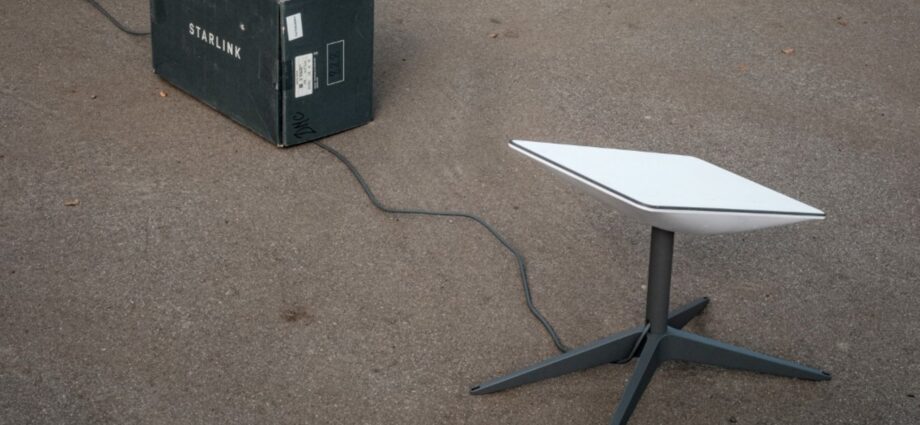Elfashir, Feb 15(Darfur 24)In the city of El Fasher, the capital of North Darfur State, Internet users have resorted to satalite internet in light of the cessation of local network services.
El Fasher is the only city not controlled by the Rapid Support Forces in the Darfur region, but it has continued to witness intermittent clashes as the army defends it steadfastly, while local leaders and armed movements work to prevent fighting there.
The government, which is under the control of the army, banned the import and use of “Starlink” satellite Internet devices, after the popularity of these devices in some cities in northern and western Sudan.
“Darfur 24” counted the presence of 52 stores that operate the Internet via satellite, some of which provide the service for free, while others charge fees ranging from one thousand to two thousand pounds, amid demand from the population.
Most of these stores are located in the neighborhoods of Al-Fasher and the Zamzam camp for displaced people, and they are locally called “Wi-Fi devices.” They contain 22 stores, while there are 15 stores in Abshuk Market and more than 7 stores in Al-Fasher Al-Kabeer Market.
It is expected that stores will increase in the recent period, in light of the interruption of communication and Internet services from local companies, an interruption that affected millions of citizens, most of whom depend on financial transfers through banking applications.
Increased demand
The owner of Al-Zaeem Internet stores, Ahmed Mahmoud, said that the cost of purchasing one device is $2,400, equivalent to approximately two million and 600 thousand pounds, while the monthly activation service costs about $180.
He pointed out that the store is subject to daily rent and expenses fees, which requires at least two months to cover the costs of purchasing it, stressing that his store is open to everyone, whether he has the financial compensation for the service or not.
Mahmoud spoke about the increase in the number of visitors to his shop after the local network services were cut off, as 250 people came daily instead of 40 people.
He explained that they provide some services for free, such as receiving and transferring money through banking applications, and facilitating communication for citizens who do not have smart phones with their relatives outside Sudan.
Communication and Internet services were cut off in Sudan, amid mutual accusations between the army and the Rapid Support Forces of causing this interruption, before Sudani and MTN were able to restore their services, which have not yet included most of Sudan’s regions.
Citizens of the states of Al-Jazeera and Sennar are still outside the coverage of the Sudani Network, in addition to some areas of the Darfur region, including Al-Fasher, where tens of thousands of people have been displaced, fleeing the violence that has spread in Sudan for 10 months.
Saadia Arabi, 43 years old, a mother of four girls, said that she now frequents the Internet café in the “Laffa Takro” neighborhood, south of El Fasher, to talk to her daughter, who lives in France, to exchange greetings and reassurance.
Speaking to Darfur 24, she stressed that she relies on her daughter, who lives in France, to buy their needs, as she transfers the equivalent of 100 euros to her in the Bankak application, which is the mobile banking service from the Bank of Khartoum, which is an amount sufficient to buy their needs for two weeks.
Saadia lamented the interruption of communication and Internet services, saying that “communication is the only thing left for the Sudanese after the outbreak of war, and after it was interrupted we went backwards. I wish they knew our suffering.”
Citizen Younis Ahmed, who frequents the Al-Baroudi Internet Café in El-Fasher, complained about the weakness of the Internet and the difficulty of communicating through social media applications, attributing this weakness to the crowding of citizens.
The disruption of communication and the Internet doubled the suffering of the Sudanese, especially in the Darfur region, which was suffering from the effects of prolonged wars between the former regime and the armed movements.

